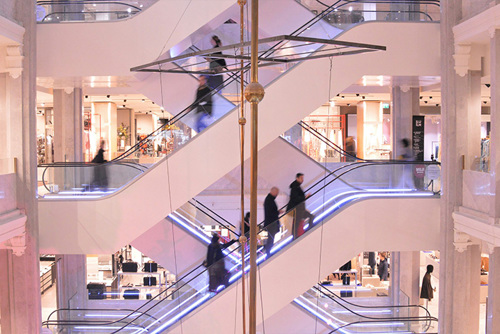Performance
Adrigo Small & Midcap L/S Class A and Class C rose 2.30% and 1.92% respectively in January, net of fees. The Carnegie Small Cap Return Index Nordic decreased by 0.68% in January .
Among the fund’s larger holdings, Online Brands (Online retailing), CHG Group (Online retailing), Golden Ocean (Transportation) and Ossdsign (Medtech) provided good contributions. Among the fund's mid-sized positions, we noted good contributions from the new position in Nanoform (Pharmaceuticals) and Frontline (Transportation). Our short positions had a positive contribution in aggregate.
Adrigo Small & Midcap L/S Class A has returned 99.61% since inception, net of fees. The compounded return has been 11.7% per year since inception. In the same period, the benchmark STIBOR 1M rate returned 4.0% and the Carnegie Small Cap Return Index Nordic gained 75.6%.
Market comment & the companies
Overall, global stock markets continued to perform well in January. The Swedish market was one of the exceptions and the OMS Stockholm Benchmark fell by 1.5%. Swedish small caps (CSRX) fell by 0.7%. The Danish market rose by 6.6% and the Finnish by 0.8% while the Norwegian market fell by 3.3%. The oil price has, since the trough in mid-December, performed well and rose by 4.7% during January. Towards the end of the month, the Saudi Government decided that Saudi Aramco should not proceed with its plans to increase the maximum daily production from today's 12 million to 13 million barrels. The decision was unexpected and led to sharp declines in the oil service sector.
Companies reporting in January have mainly consisted of large caps. Sandvik, Autoliv, Wärtsilä and SKF belong to the group that positively surprised and to whom the stock market showed its appreciation. Negative surprises were relatively few but included Atlas Copco and Epiroc. However, deviations were quite limited and demand has held up well. With the exception of DNB, the Nordic banks have met the market's high expectations and the sector has performed strongly.
We wrote extensively about BHG Group in our last monthly letter. The company reported a better result for Q4 but even more importantly, also a very strong cash flow. Cash flow has been in focus during 2023 and BHG Group has reduced net interest bearing liabilities by some SEK 1.6 billion (9 SEK per share). Management has communicated that profitability, rather than cash flow, is in focus for 2024 even if some reduction of inventories should still be possible. Following the report, the share has performed strongly and we would not be surprised to see some profit taking. However, we see significant potential in a two-year perspective.
Our investments in the dry bulk sector, Himalaya Shipping and Golden Ocean, have performed well. The market for large ships, so called capesize, has traditionally shown great seasonal variances with a trough ahead of the Chinese New Year and at the end of August. The most important routes for these ships, transporting iron ore, coal and other dry bulk, are South America-China, Australia-China, Africa-China and Africa-Europe. Hence, China is a key market for capesize's (and the even larger Newcastlemax's). Despite the ongoing crisis in the Chinese property sector, China has increased its steel production at the same time as the domestic production of iron ore has declined. Another interesting structural change is the increased bauxite export out of Guinea. Exports from Guinea to China have doubled since 2018 which has had a large impact on demand measured in tonne-miles. The bauxite share of the cape trade has increased from 5.4% in 2019 to 12.5% in 2023. Importantly, this trade is inversely seasonal compared to the iron ore trade, thereby reducing seasonal swings and increasing earnings for shipowners.
Shipowners are known for becoming too optimistic in good times. In 2008, the order book for capsize vessels represented 120% of the sailing fleet. This led to a long period with oversupply and low earnings for shipowners. Moreover, second-hand values were reduced which impacted NAV's negatively. Today, however, the orderbook only represents 5% of the existing fleet. Moreover, a significant part of the fleet will be impacted by stricter emission rules (EEXI and CII) which should lead to significantly increased scrapping from 2026 and onwards. Assuming 20-year lifetime for the ships, some 12 % and 31% will have to be replaced until 2028 and 2030 respectively. Himalaya Shipping and Golden Ocean have strong focuses on shareholder value. Himalaya Shipping will, on a monthly basis, distribute close to 100% of its free cash flow. The company has also committed to not ordering any more ships than the twelve Newcastlemax's it already owns. Golden Ocean distributes quarterly dividends in addition to offering a share buy-back program.
Finally we would like to thank you, our co-investors, for your continued trust.
Visits during the month
We met with a number of companies in conjuction with SEB's Nordic Seminar. We would like to mention BHG Group, Ossdsign, Nanoform and Sinch. We have also met with Nykode, NCC and a few others.
Largest contributors
- Online Brands – Online rtailing
- BHG Group – Online retailing
- Ossdsign – Medtech
- Nanoform – Pharmaceuticals
- Golden Ocean – Transportation
Share
Documents & links
Share








